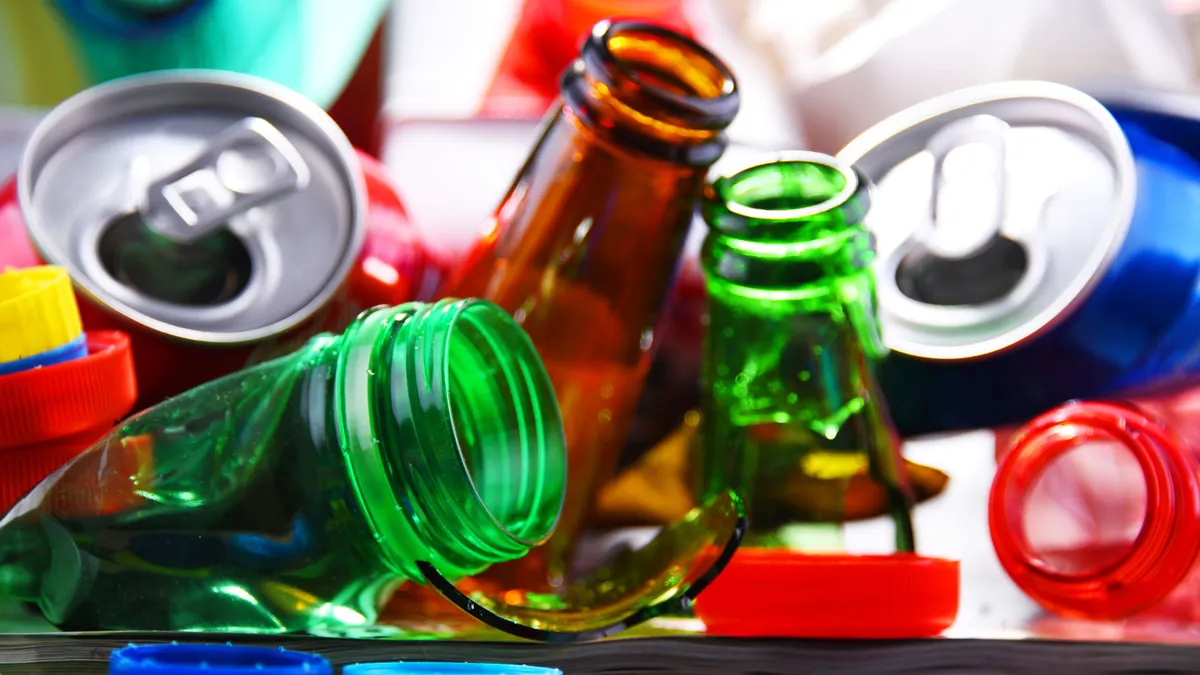In spite of disruptions from China's scrap import policies, the National Waste and Recycling Association (NWRA) still sees potential for exporting more recyclables to foreign markets and is launching a new program to help make that happen.
The NWRA Export Expansion Program (NEEP) is intended to expand opportunities for the organization's member companies. It will provide tools and resources for working with the numerous federal agencies that govern trade, as well as opportunities to participate in trade missions that explore international business opportunities. About two dozen federal agencies currently have an export promotion arm.
"With so many agencies involved in this, it's virtually impossible for small or mid-sized companies to navigate the terrain of the federal government ... We [can be] a guide to steer them through," Jim Riley, NWRA's vice president of federal affairs, told Waste Dive. "We've been trying to figure out ways that we can open the markets back up again, which in turn should increase the commodity prices as more of it is being processed and available for use."
How it works
NEEP will launch through a partnership with government relations and consulting firm Whitmer & Worrall, with the firm's trade practice chair, Gabe Pellathy, leading the initiative. He has served in several trade-focused positions within the federal government and will use that experience to help NEEP participants.
The program commences with a webinar on June 26. The initial step will be conducting an analysis to develop an overview of the current state of recycling and identify potential new markets. This will include looking at which countries and foreign businesses are accepting recyclable materials, and exactly which commodities they can receive.
"We will also conduct a survey of where some companies have had success in existing markets," Pellathy said. "There's a number of resources that the federal government can provide ... [and] a number of levers you can pull on the market access side ... Our goal is to penetrate the federal process and programs and make sure companies are able to leverage the programming the government offers."
Because each company is unique in its business operations, size and commodities, NEEP will seek tailored ways to assist NWRA members on a case-by-case basis. The program will focus not only on recyclable material businesses, but on related service providers and equipment suppliers.
NWRA and other industry associations emphasize that while many Chinese markets have dried up, other export opportunities exist — even in Southeast Asian countries that followed China's lead in increasing import restrictions. For instance, Malaysia is cracking down on plastics but market development work could uncover business possibilities for domestic metal or electronic scrap recyclers.
NWRA also asserts its continued interest in increasing domestic recycling capacity. "We're taking a three-pronged approach. NEEP is one leg of the stool. We're also looking at increasing domestic recycling capacity," said Riley. "The third leg is incentivizing and increasing domestic use of recyclable materials."
Complementary efforts
Other recycling associations are similarly helping members acclimate to the changing state of the recycling industry and identify export opportunities.
The Institute of Scrap Recycling Industries (ISRI) has a staff member dedicated to international affairs who travels the world advocating for recyclers and meeting with foreign trade representatives. This includes a number of trips to China (before and during National Sword) to advance trade. This fall, the association will host a trade mission to Indonesia and Malaysia focused on developing metal markets.
"The key areas of the mission include commercial networking, building relationships with policymakers and regulators in the two countries, and market analysis. ISRI staff and members also have expertise to provide technical assistance in those two countries," Mark Carpenter, ISRI assistant vice president of communications and marketing, told Waste Dive. "From the beginning, ISRI has had as a core tenet market development for all of its commodities."
Like NWRA, ISRI also works on domestic market development.
"Historically, the recycling industry has always been very cyclical. There are opportunities both domestically and internationally. It's up to the association to help members identify where those opportunities are," Carpenter said.
Foreign market development is also a focus for the Solid Waste Association of North America (SWANA). Rather than primarily targeting markets for recyclable materials, it also concentrates on related services and equipment.
"SWANA feels there are an increasing number of commercial opportunities for American companies that manufacture solid waste equipment or provide environmental consulting services in developing countries," said SWANA CEO David Biderman. "As curbside collection of waste and recyclables becomes more common, there is a growing market for collection trucks and carts, and a need for solid waste consulting firms to advise local, provincial and national governments on how to plan and pay for more modern solid waste systems. These all provide opportunities for SWANA members.”
Biderman explored these opportunities last month at WasteExpo and spoke to foreign delegates about future opportunities and capabilities. The association is also advancing a federally-funded landfill training and capacity-building project in Colombia that it hopes to replicate throughout Latin America as more countries close open dumpsites.


















